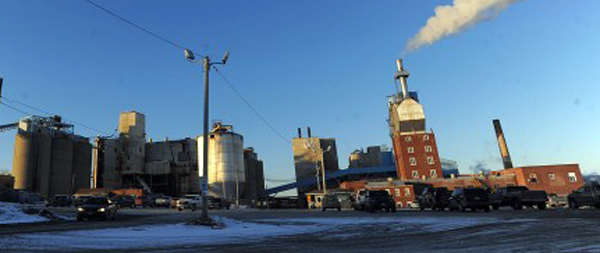Lincoln Paper and Tissue Completes $10 Million Mill Upgrade
Following the recent startup of a new $6 million biomass steam turbine and condenser system, Lincoln Paper and Tissue, Lincoln, Maine, USA, reportedly is approaching energy self-sufficiency. The company has invested nearly $10 million in the mill during the past year.
In a recent article in the Bangor Daily News (BDN), Bangor, Maine, mill co-owner Keith Van Scotter said it was difficult to determine whether the tissue mill has yet recovered from a smelt water explosion in a chemical recovery boiler in November 2013. Damage to the boiler caused the eventual layoff of some 185 mill workers, or about half of the mill’s total workforce. The explosion also shut down the mill’s pulping and papermaking facilities, forcing it to purchase market pulp.
But the energy efficiency improvements, plus the installation of about $3 million in new pulping equipment and pulp conveyors this past August, have Van Scotter and partner John Wissman feeling bullish about the mill’s prospects for continued survival in a very tough manufacturing market, Van Scotter said in the BDN article. The company also made some water reduction and fiber recovery improvements to its operations.
"John and I will have been here 11 years at the end of May. If I had been able to take bets on everybody who thought we would fail, I wouldn’t have to work for a living. Business is hard, but we have good people, our customers love us, and our suppliers have always been treating us well. I feel good about the business. We have invested the money because we believe in it," Van Scotter explained in the BDN article, adding that "we took a difficult situation, and charted the best path out of it. We focused our efforts to create a long-term sustainable business."
Efficiency Maine, an independent trust dedicated to promoting the efficient and cost-effective use of energy to save money for Maine residents and businesses, contributed a $1 million incentive to help LP&T retrofit its older and less efficient pulp refining equipment. The rest of the nearly $10 million in upgrades came from LP&T stockholders, according to Van Scotter.
LP&T produces approximately 200 tpd of tissue. It advertises itself as the largest producer of deep-dyed tissue in the U.S. Its tissue products are used by party goods producers, airlines, and food service companies to create napkins, towels, table covers, and other specialty products. The company also produces specialty tissue stock for health care products such as medical draping, disposable gowns, and beauticians neck strips, and for industrial applications including electrical tissue.
TAPPI
http://www.tappi.org/

